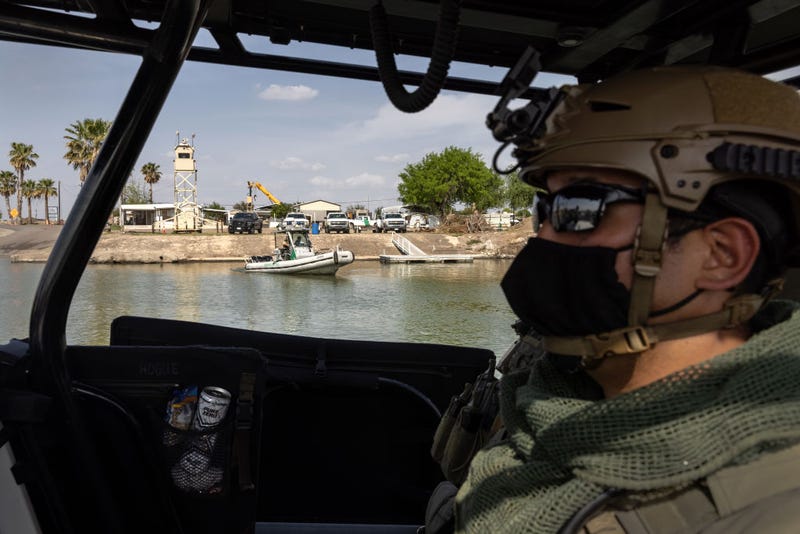
During a weekly media briefing on the "Operation Lone Star" project to crack down on drug trafficking, Texas Department of Public Safety Lt. Christopher Olivarez said authorities in the state have seized 886 pounds of fentanyl since the start of 2021.
Since just 2mg of fentanyl – a synthetic opioid around 100 times more powerful than heroin – constitutes a lethal dose, the amount seized in Texas could kill around 200 million people, said Olivarez at the Thursday meeting.

"We do have a very serious problem with this drug coming into our state, as well as to the country," he added. DPS Seized Drugs System Trainer Jennifer Hatch said carfentanyl, an elephant tranquilizer even more potent than fentanyl, has also been found in drugs seized by Texas authorities.
"They try and sell it as 'synthetic heroin' in order to increase their profits," Hatch said. "But what ends up happening with a lot of these is they end up leading to death because people don't know these are in the drugs they're ingesting."
The Texas Military Department joined with the DPS to host the media briefing on Operation Lone Star, an initiative that launched in March to prevent drugs including fentanyl and carfentanyl from crossing the Texas-Mexico border. Authorities said the drugs are transported to the U.S. by cartels and can be pressed into tablets disguised to look like prescription medications or sold in street drugs such as heroin and ecstasy.
"Fentanyl is a deadly narcotic that is plaguing our society," said DPS Director Steven McCraw. "The cartels will do whatever it takes to get it into the country, which is why Texas has stepped up to help secure our border and prevent this lethal drug and criminal traffickers from entering our communities."
Through the Operation Lone Star project alone, 160 pounds of fentanyl, or 36.2 million lethal doses, have been seized. This week was a busy one for Operation Lone Star, with nine men apprehended in Laredo Tuesday and another seven apprehended in Mission the following day.
"Texas Gov. Greg Abbott has recognized the deadly impact fentanyl has had on the state, and in July signed legislation that increased penalties for manufacturing and distributing fentanyl in Texas," said a press release from the Texas DPS.
Early this year, an Audacy analysis found that most states in the country saw an increase in deaths related to synthetic opioids in recent years. Online pharmacies have been a source of the drug and the U.S. Drug Enforcement Agency has launched the One Pill Can Kill campaign to warn Americans about its dangers.
"This rise that has been going up and up and not limited to a particular region or location, you can see it emerging around 2016," said Dr.
Nora Volkow, Director of the National Institute on Drug Abuse (NIDA) at the National Institutes of Health, told Audacy.

